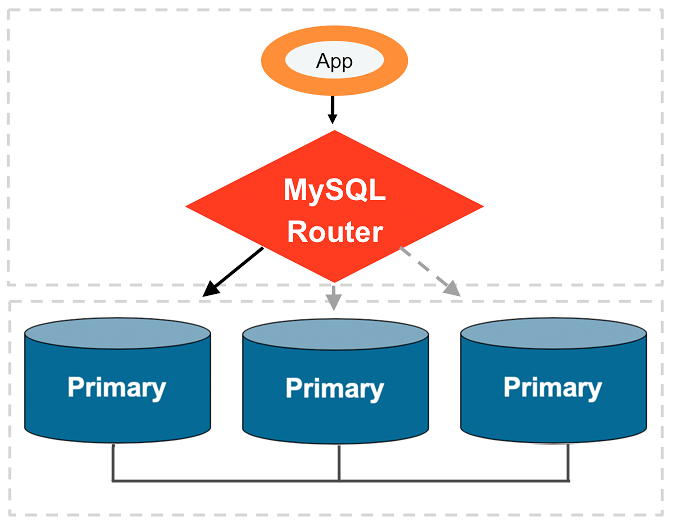MySQL Router
MySQL Router is lightweight middleware that provides transparent routing between your application and any backend MySQL Servers. It can be used for a wide variety of use cases, such as providing high availability and scalability by effectively routing database traffic to appropriate backend MySQL Servers. The pluggable architecture also enables developers to extend MySQL Router for custom use cases.
Failover
Typically, a highly available MySQL setup consists of a single primary and multiple replicas and it is up to the application to handle failover, in case the MySQL primary becomes unavailable. Using MySQL Router, application connections will be transparently routed based on load balancing policy, without implementing custom application code.
Load Balancing
MySQL Router provides additional scalability and performance by distributing database connections across a pool of servers. For example, if you have a replicated set of MySQL Servers, MySQL Router can distribute application connections to them in a round-robin fashion.
Pluggable Architecture
MySQL Router's pluggable architecture allows MySQL developers to easily extend the product with additional features, as well as providing MySQL users with the ability to create their own custom plugins providing endless possibilities. MySQL Router currently ships with a number of core plugins, including:
- Connection Routing plugin which does connection-based routing, meaning that it forwards the MySQL packets to the backend server without inspecting or modifying them, thus providing maximum throughput.
- The Metadata Cache plugin, which provides transparent client load balancing, routing, and failover into Group Replication and InnoDB Clusters.

MySQL Router transparently routes connections within a high availability group